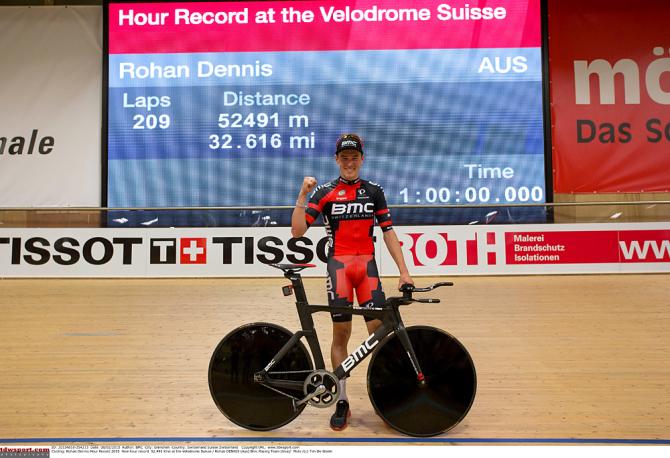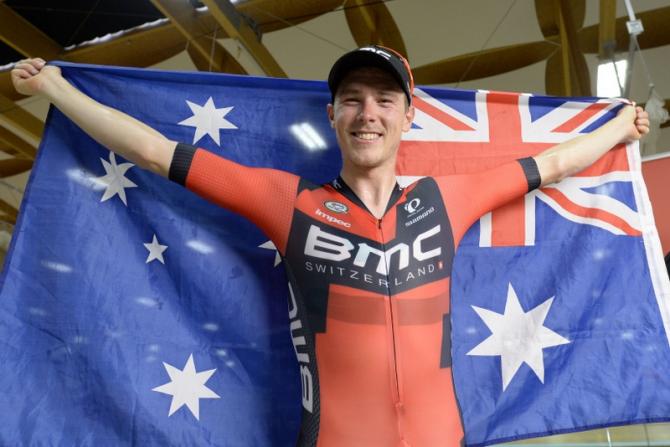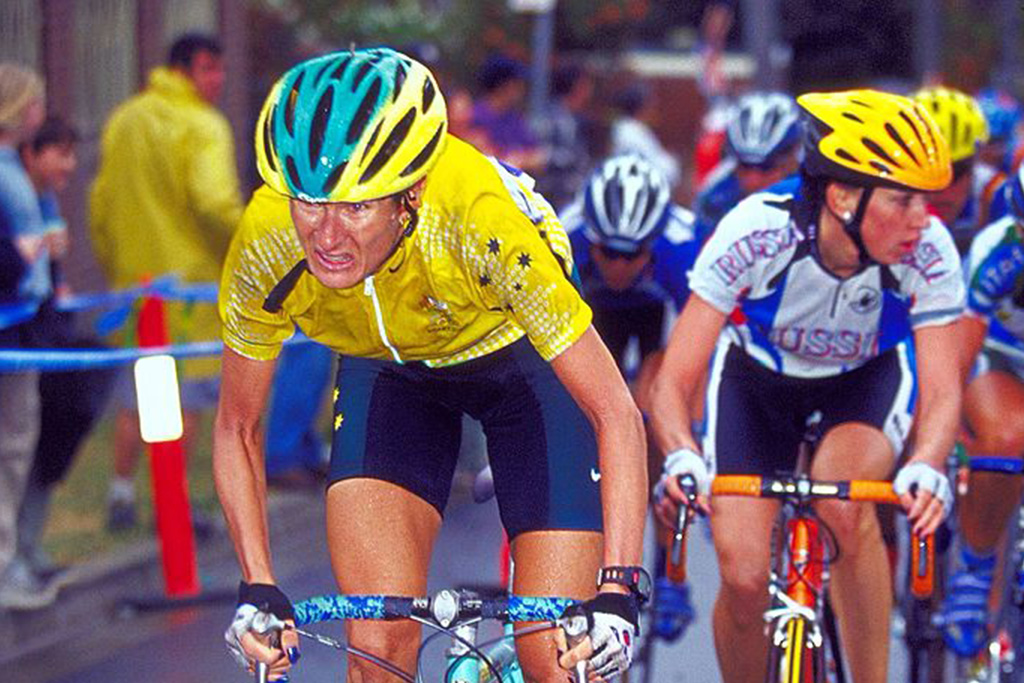Q & A: World Hour Record holder Rohan Dennis
BMC rider will 'probably' make another attempt later in his career
The latest race content, interviews, features, reviews and expert buying guides, direct to your inbox!
You are now subscribed
Your newsletter sign-up was successful
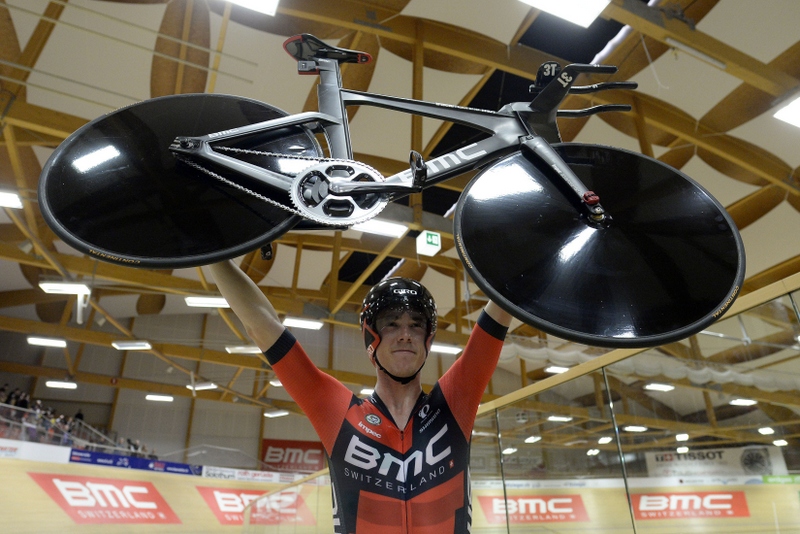
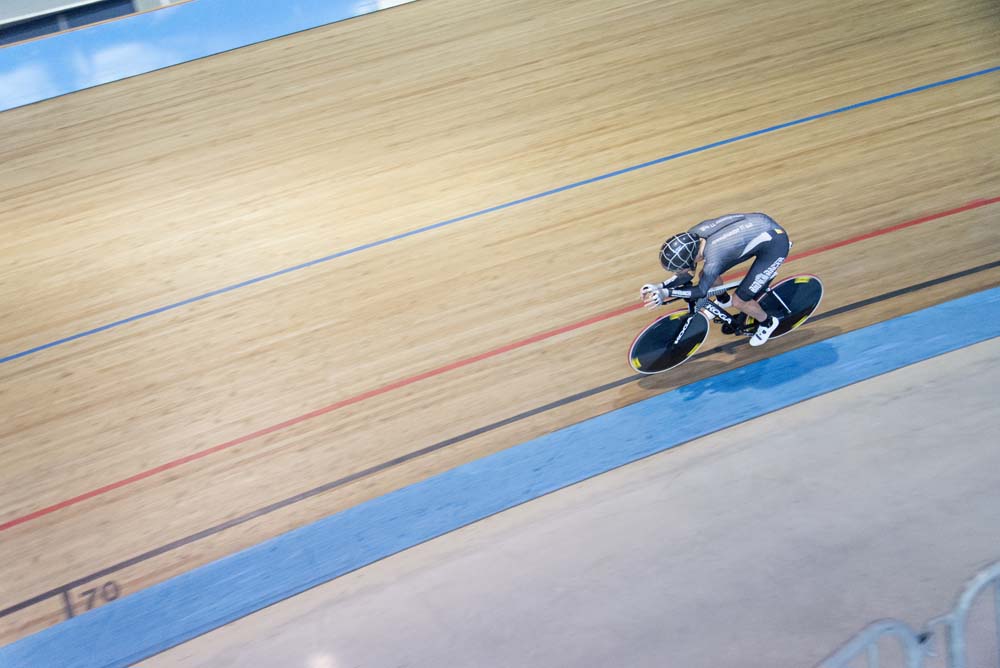
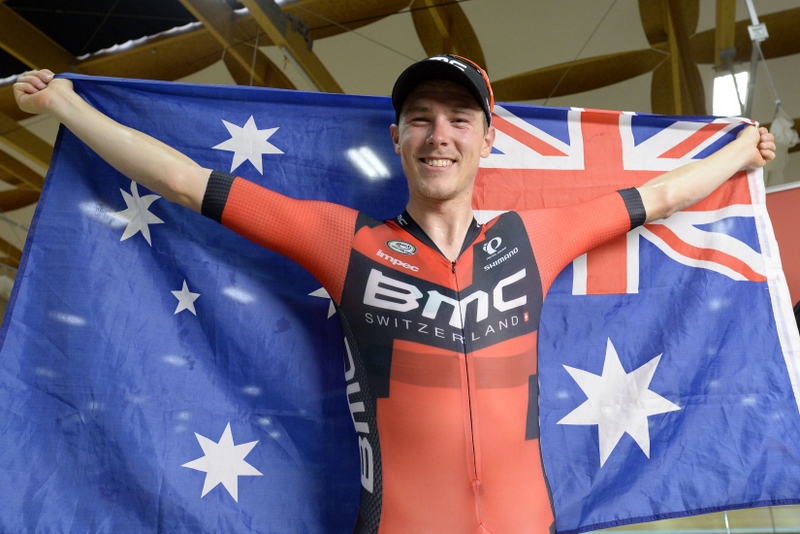
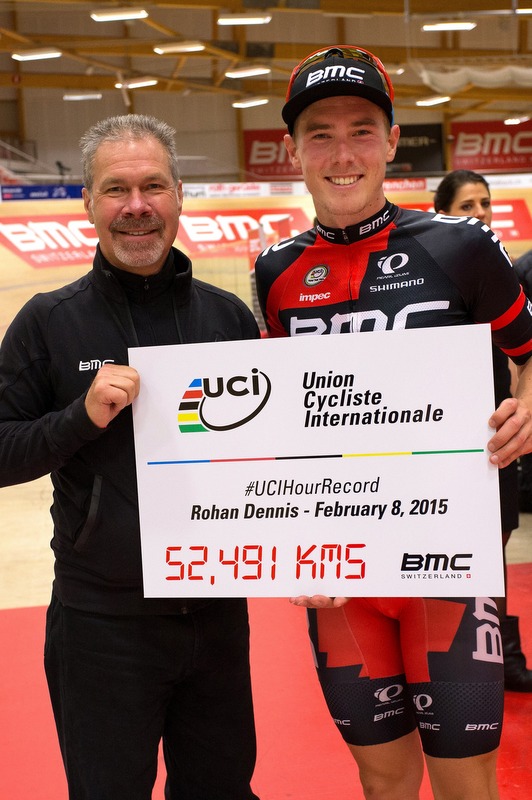
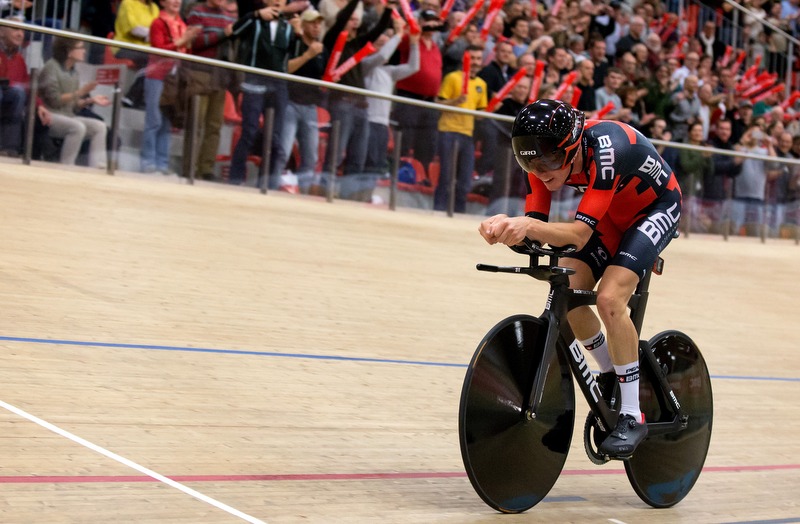
On February 8, Australian Rohan Dennis set a new and existing world hour record of 52.491km at the Velodrome Suisse in Grenchen, Switzerland. In the high altitude of Aguascalientes in Mexico on Wednesday night (local), Dutchman Thomas Dekker will attempt to break Dennis' mark. Whatever happens, Dennis will forever be known as a world hour record holder, but as he told Rupert Guinness while Dekker prepared for his attempt, the BMC rider has not ruled out another attempt later in his career.
Rupert Guinness: It's been 17 days since your world hour record ride. Have you been able absorb the feat and its significance?
Rohan Dennis: I've not had a whole lot of time to absorb it and reflect on it too much, to be honest. I tried to not think about cycling for about three days after (when) I got some time off. Now I am ready to set my goals for my next races which are Paris-Nice [March 8-15], maybe Waregem and the [Tour of] Pays Basque, Tour de Romandie and Tour de Suisse … back to my normal job. My feeling I have taken from the hour record [is] why didn't I go quicker? I know I can go quicker. I want to go quicker, but I'm not in any hurry to do it any time soon to be completely honest.
RG: How did you recover from your ride - from that night to the days after?
RD: Physically not too bad. I have felt worse. It was probably more just sitting on the saddle afterwards was probably the biggest challenge. I took three days off after … I tried to think anything but cycling and be as normal as possible, but it took about a week for saddle issues to disappear and go back to normal saddle issues. I feel like I have gone to another level … physically a little, but mentally too. I know I have been in worse pain – or more pain - than what I have put myself through in training [since].
RG: After your ride, you dismounted and held up your bike. Jack Bobridge had to be helped off in agony after his failed attempt in Melbourne a week earlier ...
RD: Obviously I felt sore but it quite surprising what you can do when you know you have achieved a goal. You have finished, got your breath back which amazingly only takes a short amount of time and then you get that energy to celebrate … which I did. But a week before when Jack did his attempt, it's amazing how much it hits you when you don't break a record and put so much in to it. You are absolutely fried physically and then your [mental] state takes a massive hit as well. I think that played a part in the difference between him and me after … from what it looked like anyway.
RG: Did seeing Jack's state after his attempt give you any second doubts?
RD: It did initially … when I heard that bit of advice to anyone who does it and he said, 'Just don't do it.' It hit me for a good 10 or so seconds until I thought, 'Hang on a minute. The way he rode it wasn't perfect … he went into the red way too soon.' So that's why he would suggest that … and if I did exactly the same sort of thing pacing-wise as what he did, I would be somewhat scarred from that. That really made me concentrate on my schedule and not try to win it in the first 10, 15 or even 30 minutes.
RG: From January to February when you also raced on the road, a theme to your rides was timing – it cost you in the national time trial, and in the Tour Down Under it paid off with your stage three win to Paracombe and when you went with Richie Porte in stage five up Willunga Hill, and in the hour record …
RD: Pacing wise at the national TT I probably went out a bit harder. And you could say I did in the hour record – I haven't perfected it yet, and that's why I said I know I can go faster. I'm not looking at doing it any time soon. There is no such thing as a perfect ride. You can always fix something. I did learn a lot from nationals and leading into the Tour Down Under that snowballed… with confidence … for the hour record. I knew I was putting out better power than in January [2013] but you can't take into account what I did [that] year because I didn't do a long [time trial] – I crashed out at the nationals – to see where my form was in relation to this year.
RG: Can you describe some of the challenging moments in your hour ride?
RD: Between 25-30 minutes I was thinking, 'God, this is crap. What am I doing?' I had that in the half hour test I did about four days before – about 15 minutes in I was like, 'I know I am good, why am I bothering doing this in training? I know I can hold this race pace, I just need to do it on race day.' I was thinking the same thing on race day, but I knew I had to keep going. It was almost half-way, but I was going to be in the unknown, so it was more of a mental battle leading into that half hour. The physical thing kicked in at around 40 minutes. I thought, 'that pinches a bit' and then my mind started to waver. I started thinking about things outside of what I was doing … the smell of the sausages and the coffee and [how] I'd love a drink of water. [With] 15 minutes [to go] I was thinking, 'if I get through seven minutes that's almost half of what I have left to do. Then with seven minutes to go I was absolutely fried. I knew I had it, but it was a matter of getting to the finish at the hour with the best speed possible.
The latest race content, interviews, features, reviews and expert buying guides, direct to your inbox!
Rupert Guinness is a sports writer for The Sydney Morning Herald (Fairfax Media)
Rupert Guinness first wrote on cycling at the 1984 Victorian road titles in Australia from the finish line on a blustery and cold hilltop with a few dozen supporters. But since 1987, he has covered 26 Tours de France, as well as numerous editions of the Giro d'Italia, Vuelta a Espana, classics, world track and road titles and other races around the world, plus four Olympic Games (1992, 2000, 2008, 2012). He lived in Belgium and France from 1987 to 1995 writing for Winning Magazine and VeloNews, but now lives in Sydney as a sports writer for The Sydney Morning Herald (Fairfax Media) and contributor to Cyclingnews and select publications.
An author of 13 books, most of them on cycling, he can be seen in a Hawaiian shirt enjoying a drop of French rosé between competing in Ironman triathlons.
